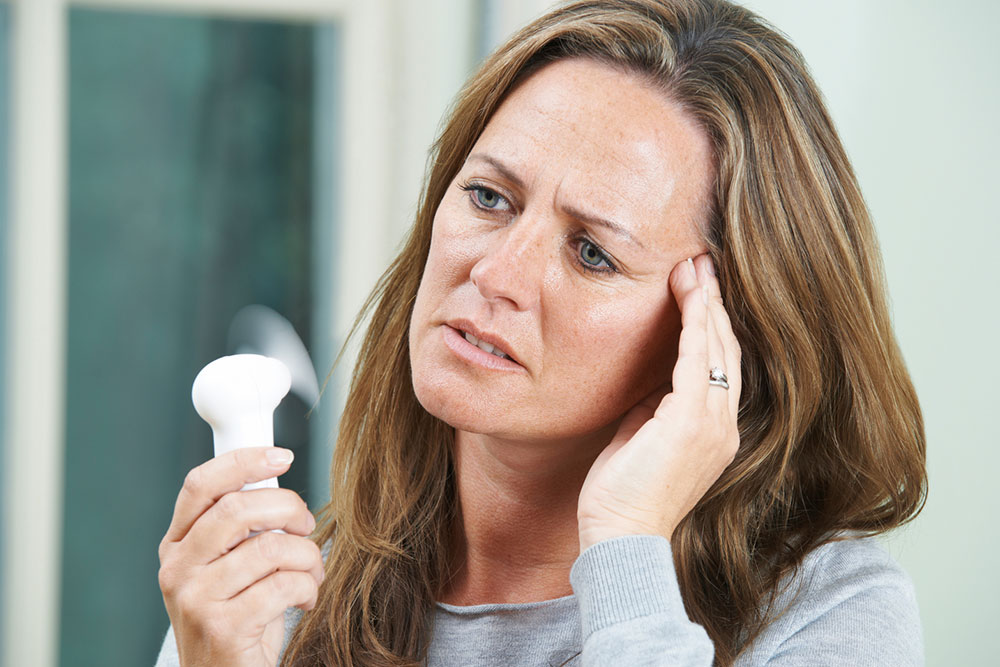Menopause – Causes, symptoms, and management

Menopause is a natural biological process that marks the end of a woman’s reproductive years. During this time, a person usually goes 12 consecutive months without a menstrual cycle. The ovaries gradually produce less estrogen as one ages, leading to irregular menstrual cycles. When the ovaries stop producing estrogen, menopause occurs. Once menopause begins, the fat cells start making most of the body’s estrogen. Here are details on its causes, symptoms, and treatments for menopause.
Causes of menopause
Menopause is a process that women experience wherein their ovaries no longer release an egg every month and the cycle of menstruation, marked by bleeding, no longer takes place. It usually begins after 40 years of age, but some may experience it earlier. Aging is the most common reason for natural menopause, but there are other reasons why one may experience it. Ovarian surgery, for example, may also be one of the reasons. Chemotherapy is another standard cancer treatment that can damage ovaries and lead to menopause. There are other reasons why the menstrual cycle may stop, like surgery, hormonal treatments, and radiation therapy, to name a few. But to consider a stage as menopause, one has to complete a year without menstrual bleeding.
Symptoms of menopause
As women approach menopause, here are some common signs they may experience:
Hot flashes
Hot flashes, also known as vasomotor symptoms (VMS), are the most common symptoms. They involve a sudden warmth spreading across one’s upper body. These are accompanied by blushing, a racing heart, and sweating, and the hot flashes can vary from mild to severe.
Changes in sensitive areas
Menopausal women may also experience irregular or missed periods, heavier bleeding than usual, vaginal dryness, or sore or tender breasts.
Dryness
Menopause can lead women to feel dryness in their skin, eyes, or mouth.
Sleep issues
They may have trouble falling asleep, may experience night sweats, or even cold flashes during the night.
Emotional changes
They may experience bursts of emotions, such as irritability, anger, crankiness, or even depression.
Urinary urgency
They may get the urge to pee more often than earlier and see changes in their libido.
There are also other signs like:
Hair thinning or hair loss
Headache
Fatigue
Inability to focus
Temporary memory lapses
The severity, frequency, and duration of the symptoms vary from person to person. Some may see mild signs, while others may have to seek professional help to manage severe symptoms. Some symptoms, like hot flashes, may get better with time.
Homeopathy treatments for menopause
Homeopathy is an alternative treatment that can help women in menopause to manage many of their symptoms. Most commonly, homeopathy effectively regulates, stabilizes, or addresses the following symptoms:
Hot flushes, especially with profuse sweating
Head congestion
Mood alterations or emotional ups and downs
Skin problems
Not feeling alert or active
Worrying excessively
Backaches or migraines
Outbursts of emotions like anger
Often, women may also feel sluggish, weak or weary during menopause, experience persistent irritation in moods, or even lose interest in normal activities, which can be helped with homeopathy. There are a variety of homeopathy remedies, so one should consult a healthcare professional to ensure they receive the right homeopathy treatment to fight their particular symptoms.